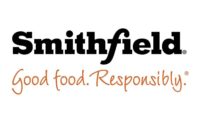10-16 news: ConAgra to cut sodium in its food products by 20 percent
“Sodium reduction is part of our ongoing work to make food more nutritious,” said Gary Rodkin, ConAgra Foods CEO. “Americans need less salt in their diets, and they want less salt in their diets. We have the capability to meet consumer wants and needs—food people love not only because it tastes good, but also because it’s better for them.”
Building on the knowledge and expertise gained through their development of recipes for its Healthy Choice items, ConAgra Foods’ chefs and scientists have worked diligently since 2006 to reduce salt in various brands, such as Orville Redenbacher’s popcorn and Chef Boyardee pasta. To date, this work has resulted in 2 million fewer pounds of salt per year in the domestic food supply.
The scope of the ConAgra Foods’ salt reduction includes as many as 20 brands, 160 product varieties (formulas), and all temperature categories in the supermarket. “ConAgra Foods has the ability to make an impact on sodium in a very broad way,” said Al Bolles, Ph.D., executive vice president, Research, Quality & Innovation, ConAgra Foods. “What that means is that we’ll need to use different techniques to keep or enhance the taste of all types of food in our portfolio, from Hunt’s tomatoes to Marie Callender’s convenient meals to Fleischmann’s table spreads. This is a definite challenge—but one that is very worthwhile and one we are confident that we can meet.”
Source: ConAgra Foods
Oklahoma poultry trial update: Geologist used daughters as researchers
A geologist whose report became the backbone of Oklahoma's pollution lawsuit against 11 poultry producers admitted that he used family and friends and his daughters to do some of his legwork. J. Berton Fisher, one of the state's expert witnesses, said during cross-examination that he put family and friends on his payroll at $18 an hour and billed Motley Rice, a South Carolina firm representing the state on the contingency-free basis, $35 an hour.The AP reports that Scott McDaniel, an attorney for Peterson Farms Inc., one of 11 companies being sued by the state, claimed Fisher's firm was largely supported by lawyers who hired him as an expert, and he had relationships with at least two of the attorneys who eventually sued the poultry industry. Fisher also admitted that several water samples were taken by his staff before they were instructed on how to do it properly.
Earlier, Fisher testified about the growing poultry industry in the Illinois River watershed and how the area's terrain and soil allowed contaminants from poultry litter to seep into streams and groundwater.
Source: Associated Press
Tyson subsidiary hopes to revolutionize pet treat market
Provemex International Holdings Inc., a subsidiary of Tyson Foods, will launch a new line of pet treats at its new Independence, Iowa, plant, that it hopes will revolutionize the $3.4 billion pet food market. The company will renovate a now-closed facility and begin production in early 2010, producing pet treats that will employ processing techniques normally found with human food, according to the Quad City Times.The new plant will process more than 1.5 million pounds of raw materials from other Tyson facilities to produce the treats, “whose qualities surpass products in the market today,” according to a project report filed with the Iowa Department of Economic Development. The plant will begin with 40,000 square feet of production space and will ultimately expand to 100,000 square feet with about 105 employees.
Source: Quad City Times
Nebraska company recalls beef tongues
J.F. O'Neill Packing Co., an Omaha, Neb., establishment is recalling approximately 33,000 pounds of beef tongues that may not have had the tonsils completely removed, which is not compliant with regulations that require the removal of tonsils from cattle of all ages, the U.S. Department of Agriculture's Food Safety and Inspection Service announced.Tonsils are considered a specified risk material (SRM) and must be removed from cattle of all ages in accordance with FSIS regulations. SRMs are tissues that are known to contain the infective agent in cattle infected with Bovine Spongiform Encephalopathy (BSE), as well as materials that are closely associated with these potentially infective tissues. Therefore, FSIS prohibits SRMs from use as human food to minimize potential human exposure to the BSE agent.
Various weight cases of "BEEF TONGUES" are subject to the recall. Each case bears the establishment number "EST. 889A" inside the USDA mark of inspection and were sold under the following brand names: "J.F. O'Neill Packing Co.," "Whole Foods Natural," "Whole Foods Organic," "Premier Protein Partners," "Montana Ranch Brand," "Grassland Beef," "Austin Meats," "Morgan Ranch," "Kobe Beef America," "Imperial Wagyu Beef," "Brand Advantage Wagyu," "Brand Advantage Partners," "Yamaya U.S.A.," and "A.D. Rosenblatt."
The company is recalling all products packed between July 1, 2009, and October 8, 2009. These products were shipped primarily to distribution centers in Nebraska and California for further sale to restaurants, hotels and institutions. The problem was discovered through a food safety assessment FSIS conducted at the establishment.
Source: FSIS
Looking for a reprint of this article?
From high-res PDFs to custom plaques, order your copy today!




